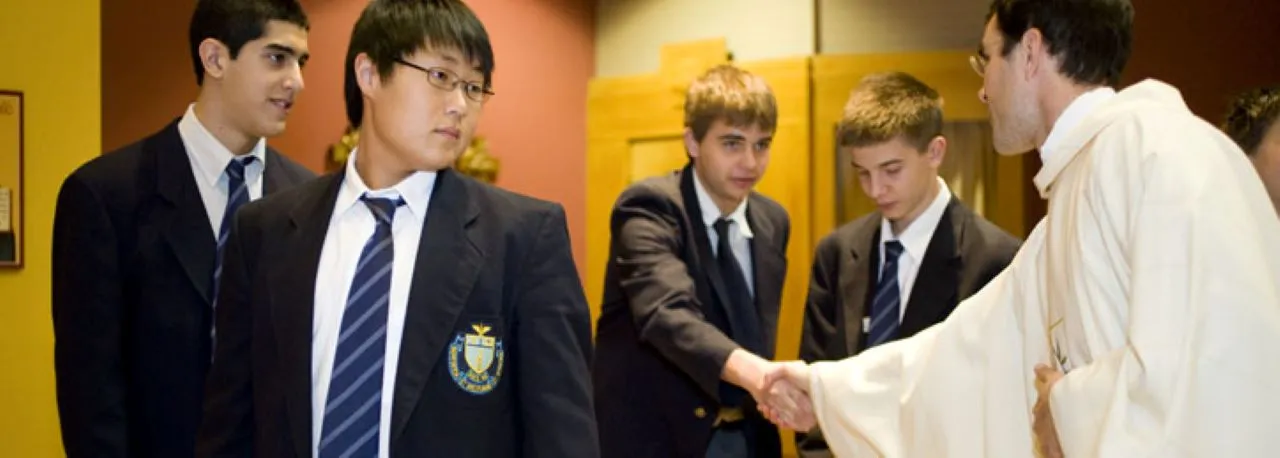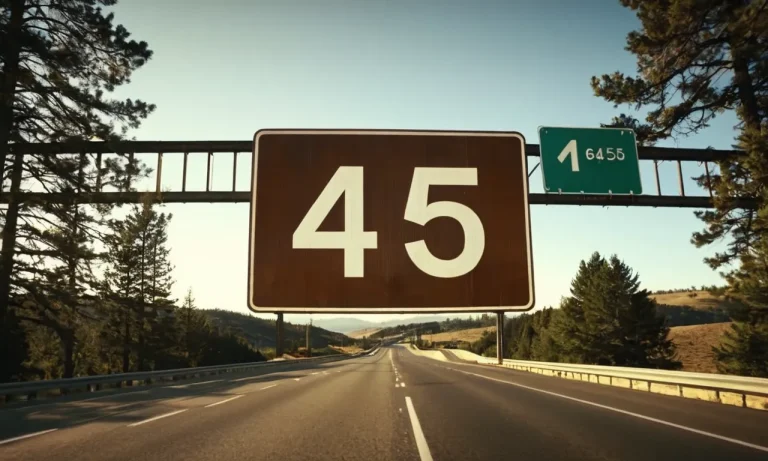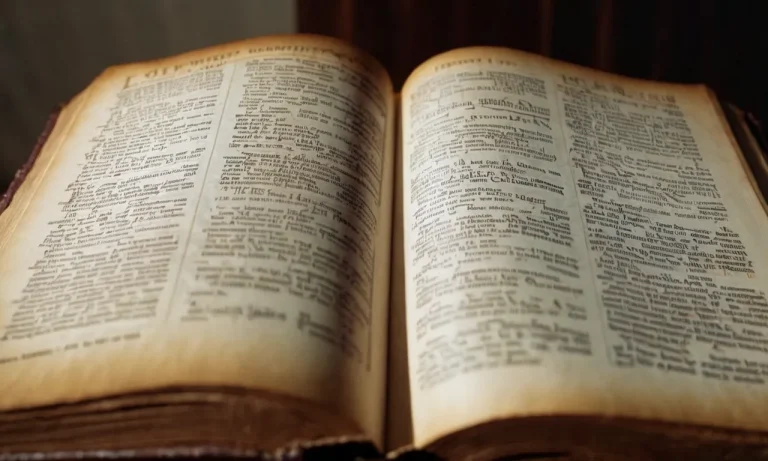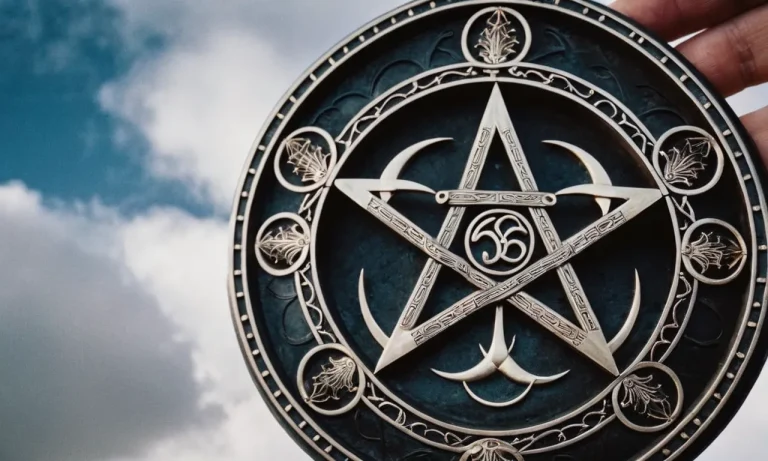Christian Vs Catholic Schools: Understanding The Key Differences
With so many schooling options available, choosing between Christian and Catholic education can be difficult. At a glance, they may seem quite similar – but there are some important distinctions between these school systems.
In short, the key difference lies in their religious affiliations – Christian schools are associated with various Protestant denominations, while Catholic schools are part of the Roman Catholic Church. Still, their day-to-day operations and educational approaches have a lot in common.
Religious Affiliation
Christian Schools
Christian schools are educational institutions that are affiliated with various Christian denominations. They are committed to providing a Christ-centered education, integrating religious teachings and values into their curriculum.
These schools aim to nurture and develop students’ faith, character, and moral values, while also providing them with a quality academic education.
Christian schools often emphasize a personal relationship with Jesus Christ and encourage students to live out their faith in their daily lives. They may incorporate Bible study, prayer, chapel services, and Christian-based extracurricular activities into their programs.
The specific beliefs and practices may vary between different denominations, but the overall focus is on fostering a strong Christian faith foundation.
Examples of Christian schools include Protestant schools, evangelical schools, Baptist schools, Lutheran schools, and many others. These schools are typically open to students from various Christian backgrounds and may have a diverse student population.
Catholic Schools
Catholic schools, on the other hand, are specifically affiliated with the Roman Catholic Church. They follow the teachings, traditions, and values of the Catholic faith and are under the authority of the local diocese or archdiocese.
Catholic schools aim to provide a comprehensive education that integrates faith, knowledge, and service.
One of the key differences between Catholic schools and other Christian schools is their adherence to the teachings of the Pope and the Magisterium, which is the official teaching authority of the Catholic Church.
Catholic schools incorporate sacraments, Catholic rituals, and traditions into their curriculum and community life.
Additionally, Catholic schools often require theology or religious studies courses as part of their academic program. These courses provide a deeper understanding of Catholic doctrine, morality, and spirituality.
Catholic schools also prioritize service to others and often have community service requirements for students.
Examples of Catholic schools include schools affiliated with the Society of Jesus (Jesuits), the Dominicans, and other religious orders within the Catholic Church. Catholic schools are typically open to students of all faith backgrounds, but they do require students to participate in religious activities and uphold Catholic teachings.
Curriculum
One of the key differences between Christian and Catholic schools lies in their curriculum. While both types of schools prioritize religious education, the emphasis and approach may vary.
Bible and Christian Studies
In Christian schools, the Bible is typically at the center of the curriculum. Students are taught to understand and apply biblical principles in their daily lives. Classes may include Bible study, Christian ethics, and discussions on faith and spirituality.
On the other hand, Catholic schools also place a strong emphasis on the Bible and Christian teachings. However, they also incorporate the teachings of the Catholic Church, including the Catechism. Catholic schools aim to provide a comprehensive understanding of Catholic theology, sacraments, and traditions.
Secular Subjects
Both Christian and Catholic schools offer a curriculum that includes secular subjects such as Math, Science, English, and History. These subjects are taught in a manner that aligns with the school’s religious values and beliefs.
Christian schools often integrate Christian perspectives into their secular subjects, fostering a holistic view of the world. For example, in a Christian school, a science lesson might explore the wonders of creation and how it reflects the work of a divine creator.
Catholic schools also integrate their religious beliefs into secular subjects. They aim to provide a well-rounded education that combines academic excellence with spiritual growth. Catholic schools often have a strong focus on moral values and social justice, encouraging students to live out their faith in their daily lives.
Catholic Theology
Catholic schools have a unique focus on Catholic theology, which sets them apart from other Christian schools. Catholic theology classes delve deeper into the teachings and traditions of the Catholic Church.
Students learn about topics such as the sacraments, the lives of saints, and the history of the Church.
It is important to note that while Catholic schools have a specific focus on Catholic theology, Christian schools may have more flexibility in their approach. Christian schools may incorporate teachings from various Christian denominations, allowing for a broader understanding of Christianity as a whole.
For more detailed information on the curriculum of Christian and Catholic schools, you can visit the respective school websites. Websites like christianschools.com and ncea.org provide valuable insights into the specific curriculum offered by different schools.
Prayer and Worship
Prayer and worship play a crucial role in both Christian and Catholic schools, but there are some key differences in how they are conducted.
Chapel and Assembly
In Christian schools, prayer and worship often take place in a chapel or dedicated worship space. Students gather for regular chapel services or assemblies where they engage in communal prayer, singing hymns, and listening to sermons or spiritual messages.
These services provide a time for students to come together as a community and deepen their faith.
In Catholic schools, prayer and worship are also an integral part of the daily routine. However, Catholic schools typically have a dedicated space called a chapel where students can participate in the Mass and receive the sacraments.
The Mass is a central act of worship in the Catholic tradition, and it is often celebrated in Catholic schools to nourish the students’ spiritual growth.
Mass and the Sacraments
One of the key differences between Christian and Catholic schools is the emphasis on the Mass and the sacraments. In Catholic schools, students have the opportunity to participate in the Mass on a regular basis.
The Mass is a sacred ritual where Catholics believe that bread and wine are transformed into the body and blood of Christ. It is a time for Catholics to come together as a community and receive the Eucharist, a sacrament that symbolizes their union with Christ.
In Christian schools, while prayer and worship are still important, the emphasis may be more on personal faith and spiritual growth rather than the sacraments. Christian schools often provide opportunities for students to engage in prayer groups, Bible studies, and other spiritual activities that help them deepen their relationship with God.
It’s important to note that both Christian and Catholic schools aim to provide a nurturing and faith-filled environment for students. The specific practices and rituals may vary, but the overall goal is to help students grow in their relationship with God and develop a strong foundation of faith.
For more information on Catholic schools and their practices, you can visit the National Catholic Educational Association. To learn more about Christian schools and their approach to prayer and worship, you can visit the Association of Christian Schools International.
Lifestyle Policies
Codes of Conduct
Both Christian and Catholic schools have strict codes of conduct that students are expected to follow. These codes often include rules regarding dress, behavior, and language. However, there may be some variations in the specific policies between the two types of schools.
In Christian schools, the codes of conduct are usually based on biblical principles and teachings. Students are encouraged to live according to Christian values, such as honesty, kindness, and respect for others.
The emphasis is on creating a supportive and nurturing environment where students can grow in their faith.
Catholic schools, on the other hand, also have codes of conduct that are based on Catholic teachings. In addition to the general principles of good behavior, Catholic schools often incorporate specific guidelines related to sacraments, religious practices, and Catholic rituals.
These schools aim to foster a strong sense of Catholic identity and spirituality among their students.
Gender Issues
When it comes to addressing gender issues, Christian and Catholic schools may have different approaches. Christian schools generally adhere to traditional gender roles, promoting the idea that men and women have distinct roles and responsibilities in society.
They may have policies in place that reflect these beliefs, such as separate dress codes for boys and girls or restrictions on certain activities based on gender.
Catholic schools, while also upholding traditional gender roles, tend to place a greater emphasis on gender equality and social justice. They strive to educate students about the importance of treating all individuals with dignity and respect, regardless of their gender.
Catholic schools may have policies in place that promote inclusivity and equal opportunities for both boys and girls.
Service and Outreach
Both Christian and Catholic schools place a strong emphasis on service and outreach to the community. However, the specific focus and approach may vary.
Christian schools often encourage students to engage in acts of service as a way to live out their faith and demonstrate love and compassion towards others. This may involve participating in community service projects, volunteering at local organizations, or organizing fundraisers for charitable causes.
Catholic schools also emphasize the importance of service, but they often have a specific focus on social justice issues. Students are encouraged to advocate for the poor and marginalized, to work towards creating a more just and equitable society.
Catholic schools may have programs in place that educate students about social issues and provide opportunities for them to actively engage in addressing these issues.
Conclusion
While Christian and Catholic schools have some clear differences in their faith backgrounds, their core goal of providing high-quality education in a God-centered environment is the same.
With an understanding of the nuances between these school systems, you can better discern which type of school aligns with your family’s beliefs and educational priorities.








